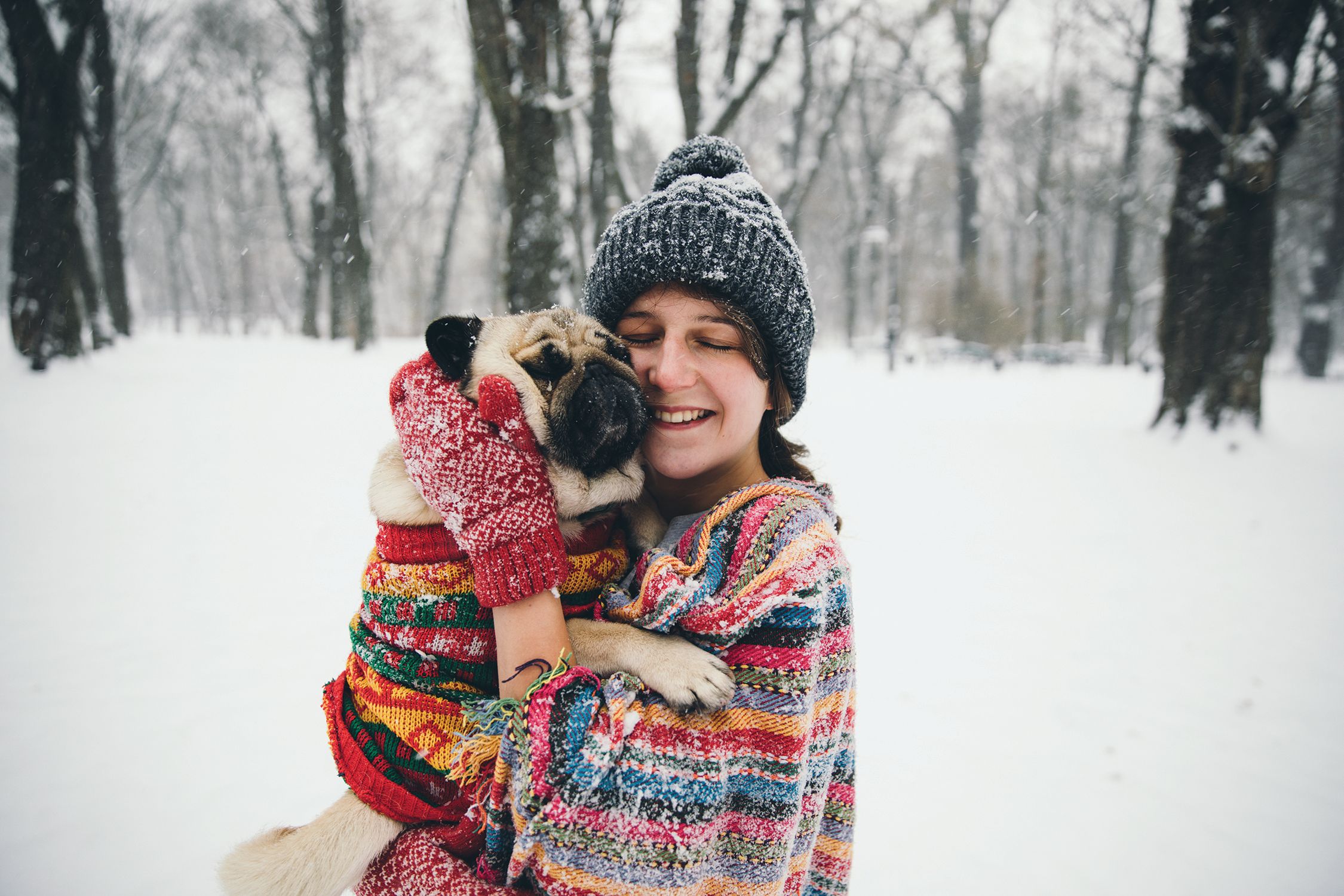6 Tips to Keep Pets Safe and Warm This Winter
Just as we prepare our homes, cars, and families for extreme temperatures during winter, it’s important to remember pets’ needs this time of year. As cold weather sets in, here are some important tips to ensure that your pets are happy, safe, and warm.
Take Caution When Outdoors. When temperatures reach levels of extreme cold, limit outdoor walks, and monitor your pet’s behavior for signs of stress or discomfort. Letting your dog outside to go to the bathroom or taking them for a quick walk is OK, but never keep them outside for a long period of time, especially during a winter storm. Also, it is best not to let your dog off leash after a heavy snowfall, as snow masks familiar scents, which can result in your pet becoming disoriented or lost if they get too far away.
Add Extra Layers. Despite efforts to limit time outdoors, your pet needs to go outside for bathroom breaks and exercise. Pets who are small, short-haired, old, or have any health issues or illnesses, may be more sensitive to cold weather. Pet sweaters help keep your pet warm, and dog boots protect paws.
Watch out for Hazardous Chemicals. Snow-melting products like deicers, antifreeze, and salt, can cause skin irritation and be fatal if ingested. Keep an eye on your pets when they’re outside and be mindful of hazards. After a walk, it’s important to thoroughly rinse your pet’s paws and stomach, especially here in Western New York, where these products are frequently used.
Keep Skin Protected. Like humans, many pets get dry skin during the winter. When your pet needs a bath, use a pet-friendly moisturizing shampoo to help keep skin healthy and hydrated. If your pet’s skin seems extra dry, supplements including fish oil can be added to your pets’ food to help the skin and coat. Remember to keep an eye on skin health and check with your vet if issues persist, as they could be signs of larger problems.
Have an Emergency Plan. When creating emergency kits in the event of a storm or power outage, don’t forget about your pet’s needs, which should include supplies to keep them fed, warm, and secure during emergency conditions such as blizzards or extreme cold. Sweaters, insulated vests, paw booties, pet-safe ice melt, and a heated bed or pad are helpful in avoiding risks associated with freezing temperatures. Also, gather items your pet may need such as
medications, puppy pads, waste bags, litter box supplies, and calming spray.
Ensure Identification Information is Current. No matter the season, it’s important that your pet always wears a tag displaying your phone number. Microchip and register your pet with current contact information, and tuck a copy of their vaccination and medical records, veterinary contact information and a current photo in your emergency kit.
The Niagara Frontier Veterinary Society consists of more than 75 small animal hospitals and 200 veterinarians in Erie and Niagara counties. Learn more at www.nfveterinarysociety.org.












